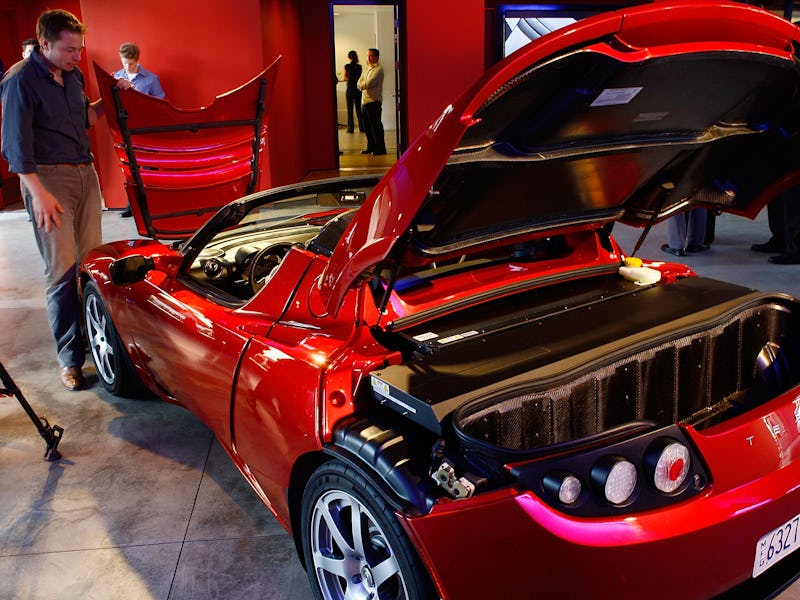U.S. Agency Beats Elon Musk and Bill Gates to "Holy Grail" of Batteries
This could completely revolutionize the U.S. power grid.

Portable electric devices — whether they’re cars, phones, hoverboards, or anything else not connected with a wire, are limited by their batteries’ ability to store power. For a long time, battery technology has been mostly stagnant — batteries get better, but only by making the existing systems of energy storage more efficient. Now, the U.S. Advanced Research Projects Agency-Energy (Arpa-E) has announced that it has found the “holy grail” of battery technology — a new system of chemistry and engineering that will allow us to store more energy than the current battery formulas.
Ellen Williams, Arpa-E’s director, told The Guardian that her agency had finally made a breakthrough after seven years of work toward the next step in power storage.
“I think we have reached some holy grails in batteries – just in the sense of demonstrating that we can create a totally new approach to battery technology, make it work, make it commercially viable, and get it out there to let it do its thing,” Williams told the Guardian.
Tech kingpins Elon Musk and Bill Gates have both been chasing the next step in battery technology, which would open up new doors for their respective companies.
The search for a better battery is much bigger than phones and cars. Arpa-E says its breakthrough could revolutionize the United State’s energy grid, as massive batteries would make storing the power generated from solar and wind sources much more feasible in the long run.
“I think that’s one area where we have delivered big time,” Williams said to the Guardian, saying that the changes could take effect in five to ten years.
Arpa-E is a government agency that’s part of the Department of Energy, specifically created in 2009 by President Obama to fund cutting-edge energy technology and research. The search for a better battery, like many of Arpa-E’s projects, is referred to as a “moonshot,” or a project that’s prohibitively expensive for much of the private sector, but could have immense benefits if successful. Still, private technology barons like Gates and Musk have sunk billions into finding a better way to store energy, and it appears that Arpa-E has beaten them to the punch. Still, if it means America gets a feasible way to store massive amounts of clean energy from solar panels and windmills within the next decade, everyone’s a winner.